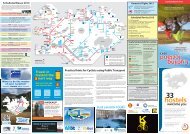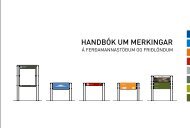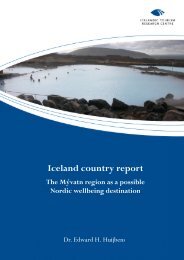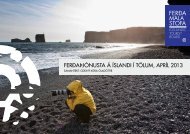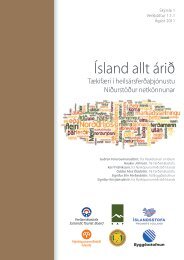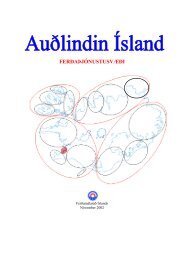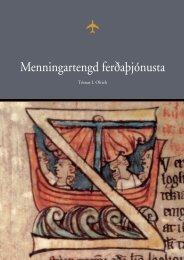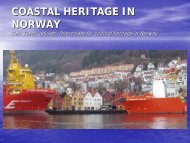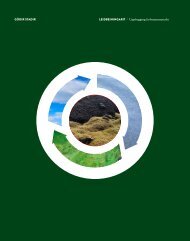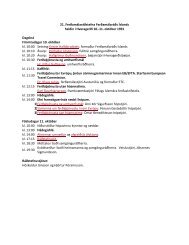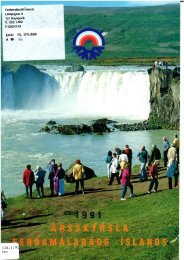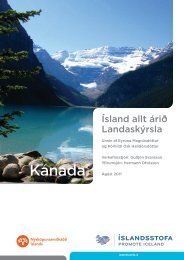Untitled
Untitled
Untitled
Create successful ePaper yourself
Turn your PDF publications into a flip-book with our unique Google optimized e-Paper software.
(something) which marks (represents) it for a tourist (someone). The use of<br />
the term “marker” is here extended by MacCannell to cover any kind of<br />
information about a sight, including for example what could be found in<br />
travel books and in stories told by persons who has visited it before. Today<br />
information on the Internet would certainly qualify as important markers.<br />
A tourist attraction is thus a combination of “meaning and matter”<br />
(Gren 1994), a sight transformed through markers into something that may<br />
fascinate a tourist. This duality, this combination of what we are able to<br />
grasp by the perception of our bodily senses and what we can signify and<br />
understand by and through language, goes into the very heart of tourism as<br />
such. It is not restricted to a semiotic account of the tourist attraction.<br />
More generally it can be said that any tourist experience is in<br />
practice the outcome of an embodied encounter with something material<br />
that simultaneously is being braided with an interpretation of its meaning.<br />
In a similar way, tourism denotes real locations with tangible tourist<br />
attractions that real people can travel to and visit. On the other hand,<br />
tourism connotes a range of intangible qualities, like various touristic<br />
amenity values that may be experienced in situ through direct bodily<br />
encounters, as well as through an indirect at-a-distance engagement with<br />
images of various sorts.<br />
This characteristic of tourism, as in-between meaning and matter, is<br />
also present in one of its most important contemporary manifestations: as a<br />
commodity.<br />
The commodity & tourism<br />
Today tourism is being produced and consumed very much like any other<br />
commodity. Tourism products may have some specific features that make<br />
them different from many others, e.g. their intangibility but as an industry<br />
tourism is subject to economic rationality and firmly embedded in the orbit<br />
of capital transactions.<br />
Long gone are the days of the old relationship between guests and<br />
hosts that was knitted together by a thin string of altruistic human<br />
hospitality, which meant to grant shelter and provide a bed for a travelling<br />
stranger without knowing whether one would ever get anything in return.<br />
Nowadays the relationship is one of customers and producers. Tourism<br />
has, in a short period of modern times become an industry operationalised<br />
with business and economic rationality. On the market of supply and<br />
24



